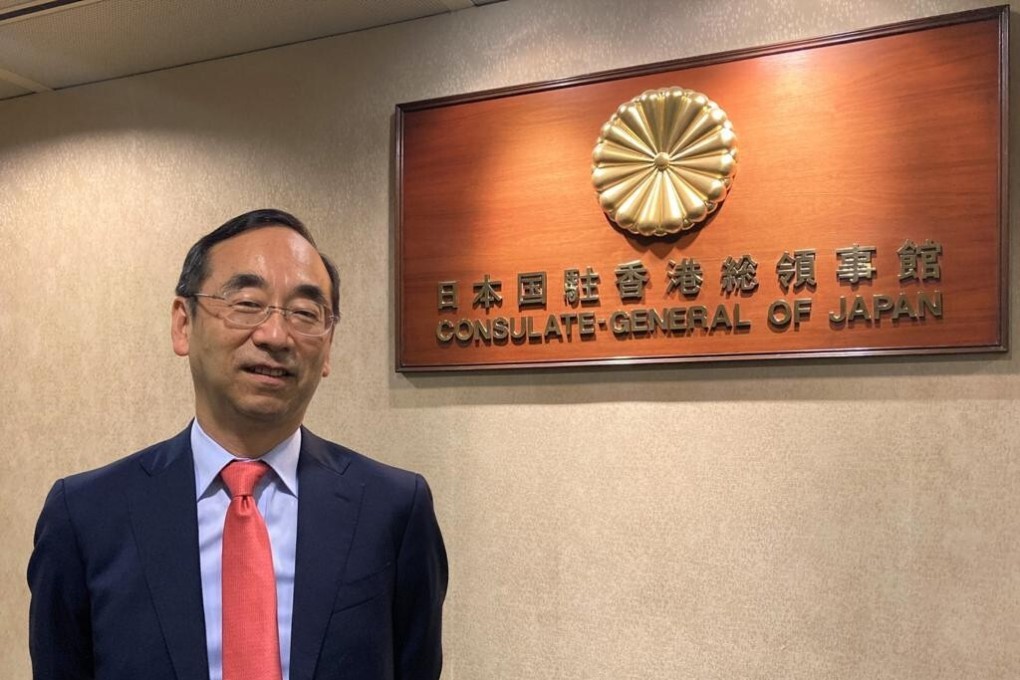Advertisement
Outgoing Japan envoy to Hong Kong calls for easing of Greater Bay Area Covid-19 travel restrictions to boost business
- Mitsuhiro Wada, who vacates his post on Sunday, said no Japanese firms had withdrawn from Hong Kong solely because of the controversial National Security Law
- Japan seeks more cooperation with Hong Kong, but a continuation of its ‘free and open system’ is what Tokyo and the Japanese business sector expect
Reading Time:5 minutes
Why you can trust SCMP
2

Hong Kong’s National Security Law (NSL) has not resulted in Japanese companies reducing their presence in the Asian financial hub, even though restrictions on information, rule of law and judicial independence remain concerns for these businesses, according to Japan’s outgoing consul general to Hong Kong.
However, Mitsuhiro Wada noted that Covid-19 border restrictions with mainland China and other countries had forced some Japanese firms based in Hong Kong to downsize. Others had moved their operations to Guangdong province to circumvent border restrictions and continue accessing factories in mainland China.
Wada called for a relaxation of border restrictions in the Greater Bay Area (GBA), which Beijing hopes to develop into an integrated economic zone encompassing Hong Kong, Macau and the cities of Guangdong province.
Advertisement
“If this situation continues, it will be more and more damaging to Japanese companies based in Hong Kong and may become a risk to the Hong Kong economy in the future,” Wada said in an e-mail interview before his three-year stint ends on Sunday.
Pointing to a July survey which showed more than 70 per cent of 270 Japanese companies in the city said border restrictions were the most serious issue for businesses, Wada said many Japanese companies have management facilities in Hong Kong and factories on the mainland.
Advertisement
“The border restrictions have greatly affected their businesses,” he said. “Some companies have already moved their offices and employees from Hong Kong to Guangdong.”
Advertisement
Select Voice
Choose your listening speed
Get through articles 2x faster
1.25x
250 WPM
Slow
Average
Fast
1.25x